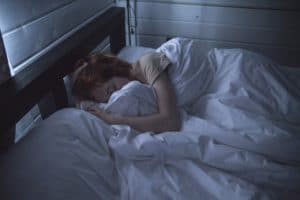Is Dementia Connected to Poor Sleep?
Like most things, sleeping is best done in moderation, and among the many effects of getting too little or too much is a new...
Posted on October 26, 2018
SleepSleep is often elusive for a large number of Havertown residents. A lack of sleep is annoying and can not only leave you feeling sluggish and groggy the next day, but it can lead to problems with memory and concentration and may negatively affect your mood, personal relationships, and on-the-job performance. Worse still, some sleep disorders can have a serious impact on your overall health and quality of life.
Determining whether you have a sleeping disorder can literally save your life!

We all experience a restless night from time to time. One night spent tossing and turning does not qualify as a sleep disorder! Only when the issue becomes chronic – say, three or four nights a week, persisting for several months – will your Havertown ENT specialist begin to consider the idea that you might have a sleep disorder. You might be asked to undergo a home or lab-based sleep study in order to diagnose whether you do suffer from a sleep disorder and, if so, what type. Insomnia, obstructive sleep apnea, and restless leg syndrome are the most common sleep disorders.
Before you even schedule an appointment with a sleep specialist, taking a close look at your bedtime habits can often shed light on the possibility that you have a sleep disorder. Signs to watch for include the following:
If you – or somebody sleeping in your bed (but not the dog) – is experiencing any of these signs, consider scheduling an appointment with your Havertown ENT specialist in order to test for a sleep disorder.
Like most things, sleeping is best done in moderation, and among the many effects of getting too little or too much is a new...
If your child snores lightly or occasionally, it’s probably not a cause for concern. However, frequent or heavy snoring may indicate that your child...
Did you spend all last night tossing and turning? TikTok wellness influencers would recommend you sip a sleepy girl mocktail—a mix of tart cherry...
Getting a good night’s sleep can be a difficult task if you’re dealing with sinus problems. Let’s look at how sinus pain and nasal...